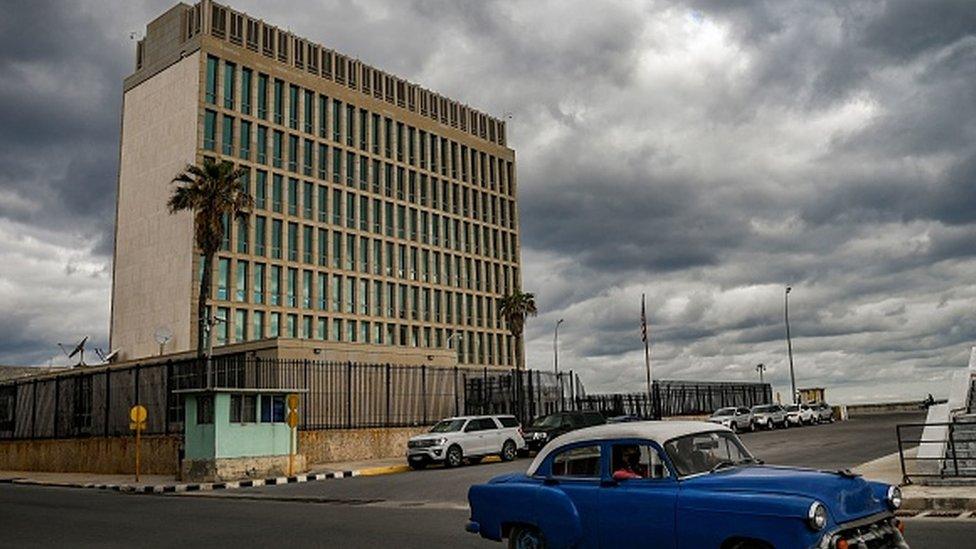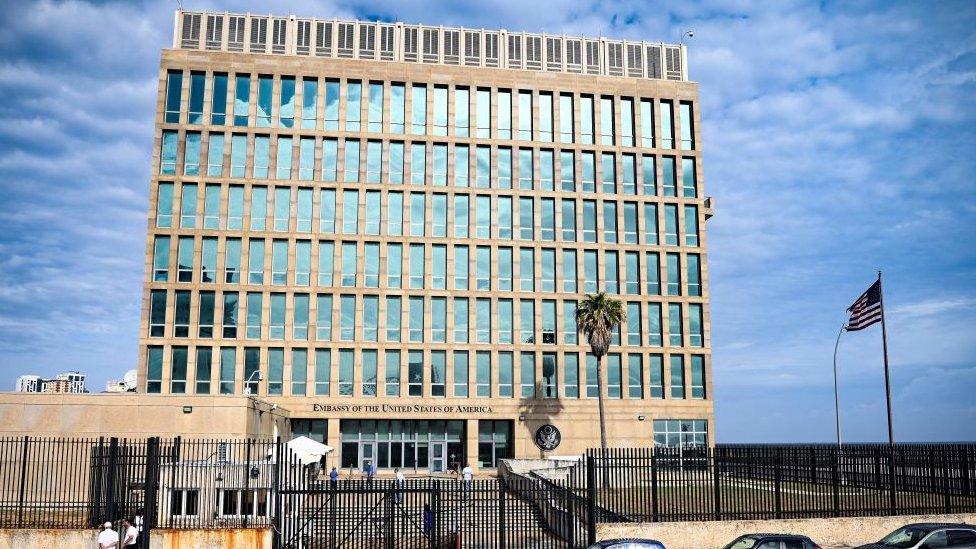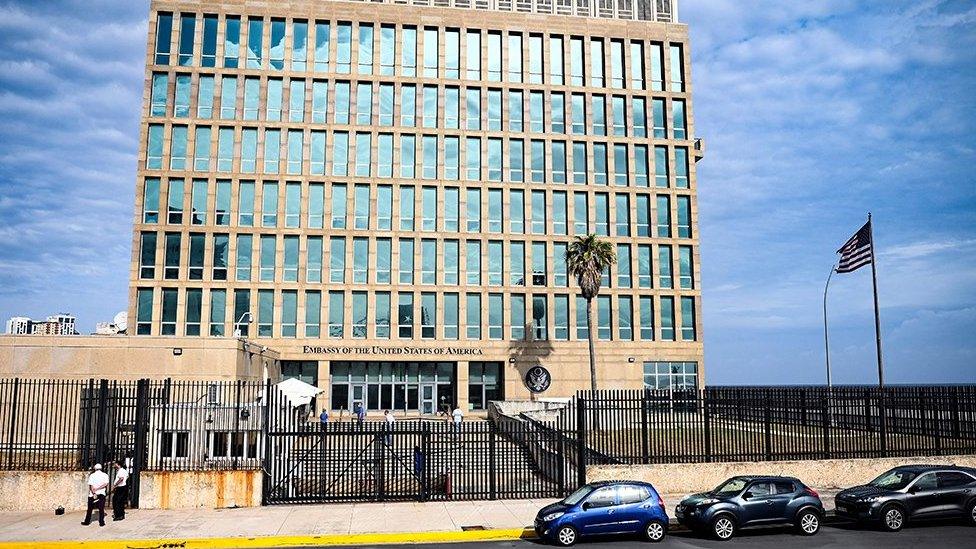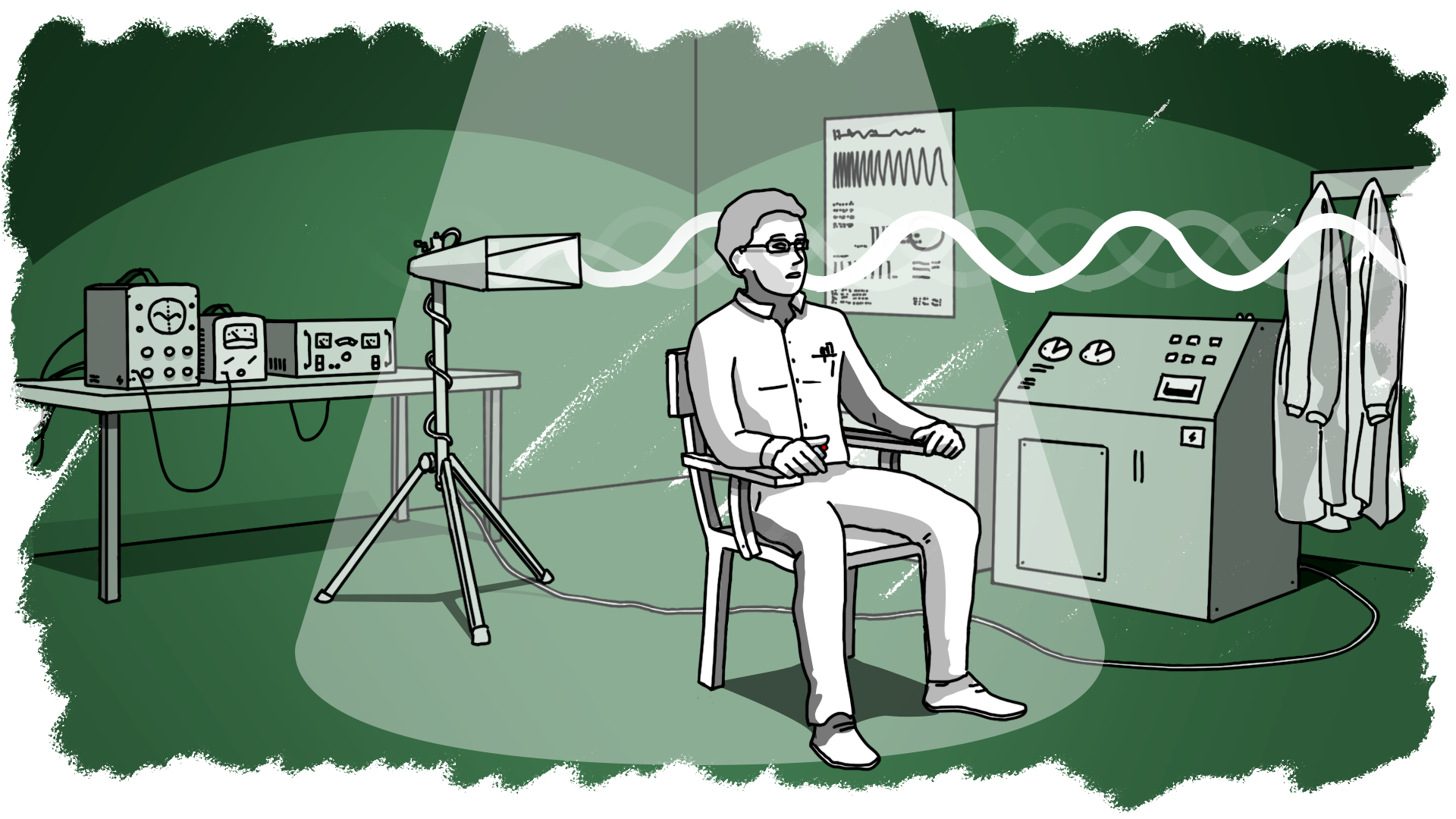Havana Syndrome unlikely to have hostile cause, US says
- Published

Havana Syndrome was first reported at the US embassy in Cuba in 2016
US authorities believe it is "very unlikely" that a mysterious illness dubbed "Havana Syndrome" is caused by a hostile foreign power.
Since 2016, US diplomats around the globe have reported feeling symptoms, fuelling suggestions that Russia, China or other countries could be behind it.
While the US now discounts that theory, no other explanation has been given.
The phenomenon gets its name from Cuba's capital, where the first case was detected.
On Wednesday, the Office of the Director of National Intelligence (ODNI) released an unclassified assessment reflecting the view of seven government agencies which reviewed more than 1,500 "anomalous health incidents" across over 90 countries.
The victims have included intelligence officers, military and State Department staff and high-level aides to government figures such as Vice President Kamala Harris.
Of the seven participating agencies, five agreed that "available intelligence consistently points against the involvement of US adversaries in causing the reported incidents" and that it is "very unlikely".
Levels of confidence between participating agencies, however, varied. The report noted that two agencies have "moderate-to-high" confidence in the assessment, while three have "moderate" confidence.
"One agency judges it is only unlikely a foreign adversary played a role and has only low confidence in this judgement," the assessment noted.
American personnel that have been struck by "Havana Syndrome" have reported dizziness, headaches and an intense and painful sound in their ears. In addition to Cuba, cases have been reported in Geneva, Berlin and elsewhere.
A previous report released by the US intelligence community in early 2022 determined that while the majority of cases could be explained by natural causes or stress, several dozen remained unexplained and could have been "plausibly" caused by a hidden device.
In a statement, CIA Director William Burns said that the findings "do not call into question the experiences and real health issues that US government personnel and their family members - including CIA's own officers - have reported while serving our country".
In an internal memo obtained by CBS, the BBC's US partner, the US defence department - which was not involved in the seven-agency assessment - also said that the symptoms of Havana Syndrome are "genuine and compelling".
At a news conference in Washington on Wednesday, State Department spokesperson Ned Price said that "the book is never fully closed" when it comes to intelligence assessments.
"An assessment like this is an assessment based on the best information available to us at any particular time," he said, adding that any new information will be factored into future assessments about the disease.
Amid mounting public awareness, in 2021 US lawmakers began passing legislation aimed at supporting victims of the syndrome. The Helping American Victims Afflicted by Neurological Attacks (HAVANA) Act was signed by President Joe Biden in October of that year.
State Department guidelines note that staff with confirmed brain injuries from the disease are eligible for over $180,000 (£150,000) each. It is not publicly known how much CIA staff who have fallen victim are eligible for.
- Published2 February 2022

- Published20 January 2022

- Published9 September 2021
